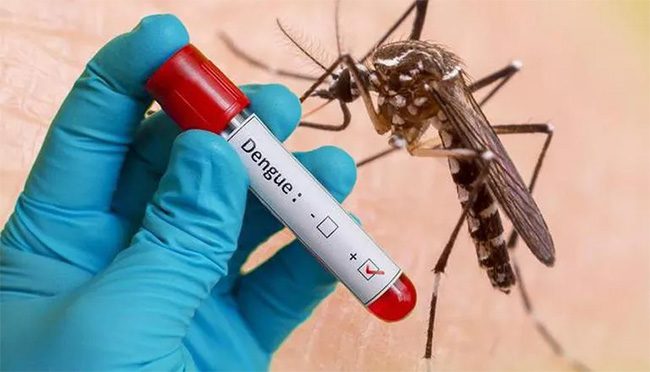On September 19, the Hanoi Center for Disease Control (CDC) reported that the number of dengue fever cases continued to rise sharply compared to the previous week. Hanoi has recorded 4 fatalities due to dengue fever.
According to CDC Hanoi, in the past week (from September 9 to 16), the city reported an additional 760 dengue fever cases (an increase of 38.9%) compared to the previous week, along with 1 death.

Dengue virus strain 4 has recently been detected in Hanoi.
Statistics show that from the beginning of the year to September 16, the capital has recorded 3,023 dengue fever cases (a 4.5-fold increase compared to the same period last year), with 4 fatalities. In addition to the circulating virus types Dengue 1 and Dengue 2, Hanoi has recently detected dengue virus strain 4.
Epidemiology experts indicate that the dengue virus has 4 different strains: Dengue 1, Dengue 2, Dengue 3, and Dengue 4. Hanoi has identified 3 strains of the virus in the city in 2022: Dengue 1, Dengue 2, and Dengue 4.
Dr. Vu Thanh Tuan from Medlatec General Hospital stated that once a patient is infected with one of the dengue virus strains, their body develops lifelong immunity to that strain. However, they can still be reinfected with another strain of dengue fever. The concerning aspect is that subsequent infections can be more severe than the previous ones.
“Do not misuse medications such as Ibuprofen, Aspirin, Sodium Naproxen, Analgin, etc., as these can have side effects that lead to bleeding complications. If a patient exhibits severe symptoms such as: severe abdominal pain and persistent vomiting; inability to eat or drink; fever has subsided but still feels unwell; cold, clammy extremities; nosebleeds, oral bleeding, or vaginal bleeding… then urgently take the patient to the hospital,” Dr. Vu Thanh Tuan advised.
What to do when experiencing severe dengue symptoms
Signs indicating a severe progression that require immediate medical attention include:
- Restlessness or lethargy;
- Severe abdominal pain in the liver area;
- Persistent vomiting;
- Decreased urination;
- Severe headaches;
- Any signs of bleeding: nosebleeds, bleeding gums, unusual or prolonged menstruation, black stools, blood in urine…
Currently, there is no specific treatment or vaccine for dengue fever. Therefore, if someone exhibits signs of suspected dengue fever, it is crucial to visit hospitals or medical facilities for examination, monitoring, and treatment. Absolutely do not self-medicate.


















































